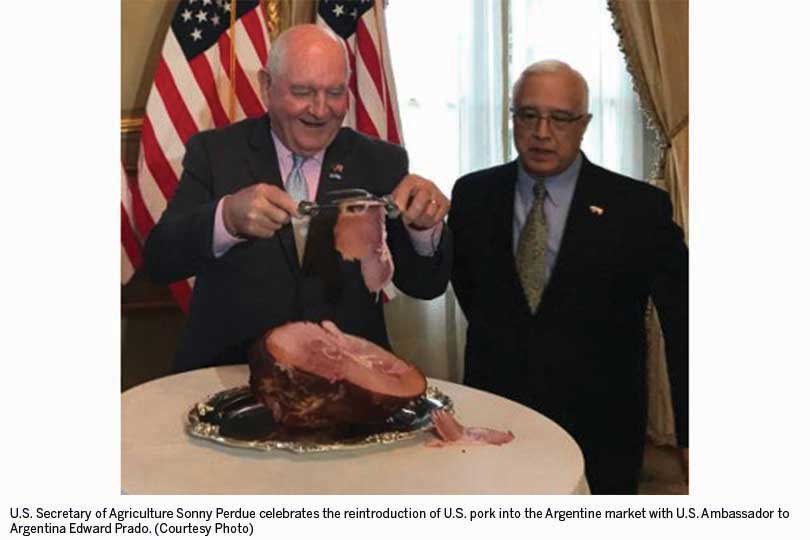By Justin Walker
Communications Specialist
U.S. Secretary of Agriculture Sonny Perdue celebrated the reintroduction of American pork products to the Argentine market this week by slicing a 10-pound, honey-baked ham with U.S. Ambassador to Argentina Edward Prado.
The two countries announced the agreement in August last year, marking the first time in more than 20 years for American pork producers to have the opportunity to market their meat to Argentina.
“The U.S. is the world’s third largest pork producer and a top exporter,” Perdue said. “This new market is a big victory for American farmers and ranchers. I am confident that once the people of Argentina get a taste of American pork products, they will only want more. This is a great day for our agriculture community and an example of how the Trump administration is committed to supporting our producers by opening new markets for their products.”
The return of U.S. pork products to Argentina was sealed during Vice President Mike Pence’s visit to Buenos Aires. Technical staff from the U.S. Department of Agriculture and the office of the U.S. Trade Representative have been working with Argentina’s ministry on the terms of the agreement that are practical, science-based and consistent with relevant international animal health standards.
The agreement will help alleviate some of the stress farmers and ranchers have experienced with ongoing trade disputes between the U.S. and other countries, according to Tracy Tomascik, Texas Farm Bureau associate director of Commodity and Regulatory Activities.
“This is positive news for farmers in a time when it seems we only hear about challenges,” Tomascik said. “Hog farmers are experiencing low sales to their biggest foreign customers, and this market opportunity will relieve some of that supply build up.”
This is the first of several trade deals the United States hopes to secure with Argentina.
In April, President Donald Trump and Argentinean-President Mauricio Macri released a joint statement committing to further growth of agricultural trade between the two countries.

